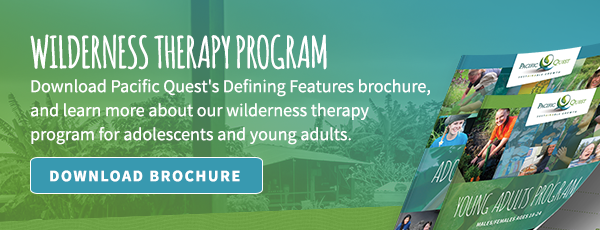Part of being a good parent is communicating the dangers adolescents may be exposed to as they get older. Sex, drugs and alcohol are all talking points that are commonly addressed. But, does that truly cover it all?
According to this study published in the journal of Public Policy & Marketing, many teens simply don’t understand the dangers of prescription drug abuse. “Prescription drugs are seen as blessed by a trusted institution, the FDA, while increasingly aggressive advertising by drug companies simultaneously floods parents and children with messages that these substances are safe, popular, and beneficial.”
The study found that along with a general lack of knowledge on the subject, high levels of anxiety and psychological stress have a direct correlation to teenage prescription drug abuse.
Nearly 20 percent of high school seniors have tried prescription drugs in their lifetime, according to the National Institute on Drug Abuse’s “Monitoring the Future” study.
Here are some talking points to cover with your teen about the dangers of teenage prescription drug abuse:
What constitutes prescription drug abuse?: Oxycontin, Adderall, Xanex, Vicodin, Ambien, Ritalin and Valium are prescription drugs that are not meant to be consumed unless legally prescribed by a clinician. Consuming prescription drugs orally or via injection—whether prescribed or not—to get high is prescription drug abuse.
Who is it safe to accept prescription drugs from?: Friends and family members may be more likely to give an adolescent prescription drugs than alcohol or illicit drugs because they have originated from a doctor’s prescription. Express to your teen that just because someone they know and trust is offering them prescription drugs, it doesn’t mean they should be any less concerned for their health and safety. Also remind them that teens—and adults—should only take prescription drugs prescribed to them in the correct amount.
What are the side effects?: Most prescription drugs have adverse side effects. Opioids can make you feel nauseous, tired and constipated. Stimulants can make users feel paranoid, induce heart palpitations and cause the body’s core temperature to rise to dangerously high levels. Depressants can cause disorientation, shallow breathing and slurred speech. When abused, all prescription drugs can potentially cause death.
What’s the risk?: Like illicit drugs and alcohol, prescription drugs are also highly addictive. Teens should only take prescription drugs when prescribed directly by their doctor, and always in the correct dose and at the proper time.
What’s the safe way to treat pain?: Teens who experience severe anxiety often turn to prescription drugs to numb their feelings. Explain that changes to fitness and diet can help to reduce anxiety and pain, and so can fun, healing activities such as gardening.
If you suspect your teen may be abusing prescription drugs, it isn’t too late to get them off the substance. There are treatment options available to help support you and your child through this situation. Pacific Quest offers a Wilderness Therapy program for both adolescents and young adults. The program incorporates whole body wellness practices like Horticultural Therapy to treat teens abusing drugs and/or have anxiety issues. Horticultural Therapy takes a growth-focused and life-affirming approach to healing. At Pacific Quest, teens test new skills and insights in a uniquely experiential way, quenching their cravings for the unknown in a healthy, productive way. By participating in the programs, they develop courage and confidence and a new set of values that teach them to seek responsibility for themselves as an expression of self-worth and gratitude.
